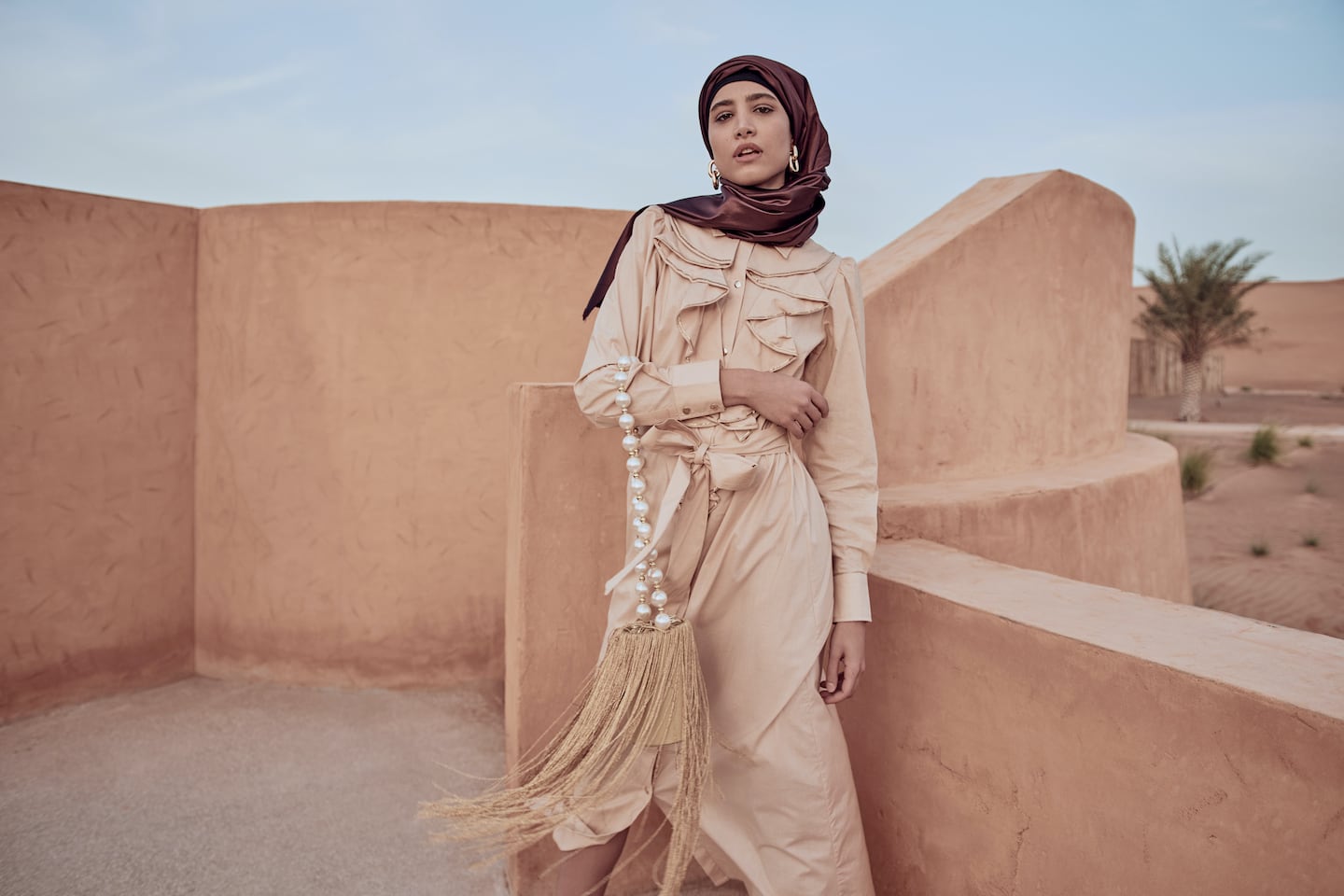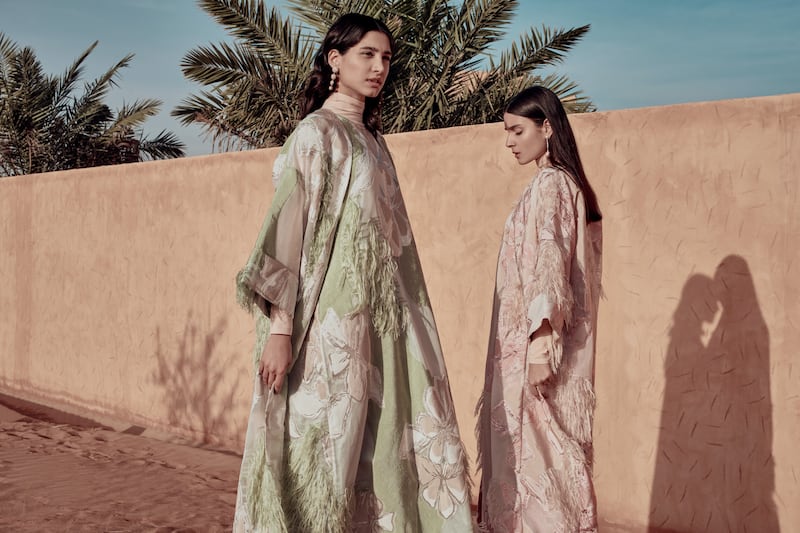
The Business of Fashion
Agenda-setting intelligence, analysis and advice for the global fashion community.

Agenda-setting intelligence, analysis and advice for the global fashion community.

DUBAI, United Arab Emirates — For most of the world's 1.8 billion Muslims, this year's Ramadan will be like no other in living memory. The holy month, which begins tomorrow in the Middle East with spiritual reflection, fasting and prayer, normally ends in a climax of celebrations for the festival of Eid al-Fitr, a period that has become the single most important sales opportunity for many retailers across the Arabian Gulf.
Fashion and luxury brands depend on the revenues that this shopping period brings to their boutiques in cities like Dubai, Riyadh, Kuwait City and Doha. This year, however, Gulf-wide mall closures, a ban on extraneous household gatherings and the absence of Ramadan tents, where residents gather to break their fast at the iftar meal or to play card games and socialise over nightly suhoors, are likely to quash demand for some luxury goods.
"I don't see the need right now to go and splurge on four or five Oscar de la Renta kaftans. I don't have anywhere to wear them," said Farah Sultan, speaking from her home in Kuwait which, like the rest of the Gulf Cooperation Council (GCC) countries of Saudi Arabia, United Arab Emirates, Bahrain, Oman and Qatar, is under lockdown measures to combat the spread of Covid-19.

Yasmin Al Mulla portrait | Source: Courtesy
ADVERTISEMENT
The coronavirus pandemic has changed everything for fashion entrepreneurs like Sultan, who is a partner in the multibrand boutique Grain in Kuwait City, and a business development director for her family firm Towell Holding. Before the region went into lockdown, Sultan said that she was planning to order a selection of statement luxury kaftans, often created by international designers for wealthy Middle Eastern clients, to wear during the social events that take place during the holy month of Ramadan.
Instead, she’ll be recycling outfits from previous years, a sentiment echoed by many in her social circle who say they are now only buying basic childrenswear, home accessories and electronics online. “A lot of the girls are like, ‘I keep putting things in my shopping basket on Net-a-Porter or Farfetch’ [but] then we just [end up buying] pyjamas for ourselves and our kids,” Sultan said.
Restrained Luxury Spending
Edward Sabbagh, managing director of Farfetch in the Middle East predicts that consumer tastes will shift this Ramadan, "We can expect to see less customers shopping for suhoor outfits, which in this region consists of opulent dresses or embellished accessories such as turbans and headbands, as people are staying home."
Marriam Mossalli, founder of Saudi-based luxury communication agency Niche Arabia, said, "Ramadan by definition is the antithesis of social distancing. It's about seeing your family, kissing them, getting your Eidiyah (the gifts exchanged during the Eid celebration, expected to fall around May 24)."
"It's about getting dressed up and going out and you're going to have less of that. Even ultra-high-net-worth individuals will spend more cautiously because there's uncertainty about their businesses. This is affecting everyone. You don't want to start spending on jewellery when you don't know what the status of your business is going to be in six months."
You don't want to start spending on jewellery when you don't know what the status of your business is going to be in six months.
Fashion and luxury retailers often count on sales during the extended Ramadan shopping period to shore up annual targets. Last year during Ramadan, monthly consumer spending on clothing and footwear in Saudi Arabia spiked at 4.8 billion Saudi riyal ($1.27bn) during May. This monthly figure is 73 percent higher than any other monthly figure in 2019, according to the Saudi Arabian Monetary Authority (SAMA), which tracks point-of-sale transactions by sector. During the same period last year, jewellery sales across Saudi Arabia saw a 46 percent lift as customers bought gifts to celebrate Eid al-Fitr.
For Yasmin Al Mulla, an Emirati fashion designer based in Dubai in the UAE, Ramadan represents the most significant selling opportunity of the year. Last year Al Mulla collaborated with Tiffany & Co, producing a capsule line of kaftans inspired by Tiffany jewellery designs that were feted over two nights during suhoor gatherings at Dubai's Mandarin Oriental hotel for 200 clients, press and influencers. This year, Al Mulla has repeated the collaboration, but the planned suhoors will not take place as UAE residents are confined to their homes, following lockdown measures which came into force in March.
ADVERTISEMENT
Nonetheless, Al Mulla believes there is still demand for kaftans, which can serve as an elevated loungewear option, for her Emirati and Saudi clients. “Ramadan kaftans are an essential element, even for dressing at home, for the Gulf region,” she said, adding, “It’s an essential part of Islam to wear new things for Eid.” Al Mulla’s pieces range in price from 1,500 to 2,800 Emirati dirhams ($408 to $762), so are a more affordable option for customers unsure of how the pandemic might affect their financial security.
The brand’s roots in the GCC also chime with patriotic sentiment of supporting local designers at this time.
Adding Insult to Injury
The timing of the pandemic has been especially cruel for Gulf businesses as longstanding headwinds impacting the region had only just begun to subside.
"When we measured consumer sentiment in December 2019 it was trending up. Over the last five years it has been going down year on year. This was the first time consumers were much more confident and willing to spend, which showed in the first two months of the year where retailers enjoyed some exceptional growth," said Abdellah Iftahy, Middle East partner at McKinsey & Company.
The inevitable domestic market decline caused by Covid-19 during Ramadan must be seen in the context of a challenging long-term retail environment, which has recently been exacerbated further by plummeting global demand for oil. Earlier this week, US crude oil futures for May fell to their lowest price in history.
“In the region we have a perfect storm. One, the global pandemic. The other one, the oil price,” said Cyrille Fabre, Middle East partner for Bain & Company. “If the oil price is low for a long period of time then governments will have to cut subsidies, cut spending and this will have an impact on economic growth. This is definitely a source of concern,” Fabre said.
In the region we have a perfect storm. One, the global pandemic. The other one, the oil price.
Retailers are already reeling from the loss of tourists who, in Dubai, account for around 40 percent of spend on fashion, following the UAE’s suspension of passenger flights on March 25. On top of that, the Dubai Expo 2020 which was meant to bring a much-needed boost to retailers later this year, will now most likely be postponed.
ADVERTISEMENT
An early casualty of the downturn was Dubai-based e-commerce platform The Modist which it is believed to have failed to secure necessary investment due to economic conditions exacerbated by the pandemic. Other early indicators of decline are unprecedented in scale.
Alshaya, the Kuwait-based franchise operator, which includes H&M, Victoria's Secret, Debenhams and Charlotte Tilbury in its 4,500-store network portfolio, announced a 95 percent contraction in revenue at the start of April. Meanwhile, at the Dubai-based Chalhoub Group which represents brands such as Louis Vuitton, Dior and Marc Jacobs in the region, Chief Executive Patrick Chalhoub wrote on a website dedicated to communicate the firm's Covid-19 response that the group's sales at the beginning of April were less than 10 percent of the previous year's level.
Chalhoub Group and Emaar, which operates the world's largest mall, The Dubai Mall, are among several retail players who have announced salary cuts. "Luxury has been hit in the [Gulf] region even more than you would see in other markets," Iftahy said. More broadly, consumer spending on fashion is also in freefall across the region.
According to McKinsey’s survey of consumer sentiment during the coronavirus crisis, at the start of April 73 percent of UAE consumers and 66 percent of Saudis said they intend to cut back on spending. In the UAE, 72 percent said they would spend less on apparel in April compared to usual, with 78 percent cutting back on accessories expenditure. In Saudi Arabia, where there is a lower proportion of expats and the government has announced private sector salary support, fashion sales are less affected and the jewellery category is the most vulnerable.
“They are clearly stating their intent of dropping their purchases — that’s the vast majority of the population, including affluents,” Iftahy added.
Over-Reliance on Bricks-and-Mortar
With retailers scrambling to cut costs and move stock from closed stores to regional warehouses and launch or enhance online operations, the crisis has exposed the Gulf’s reliance on bricks-and-mortar retail, due in part to its mall-centric culture. David Macadam, chief executive of the Middle East Council of Shopping Centres and Retailers, said, “shopping centres in this region have always been used as a prime area for socialising,” a behaviour which is likely to be diminished for a time, even beyond the reopening of malls.
Huda and Mona Kattan, the Dubai-based entrepreneurs behind Huda Beauty, say that while skincare is proving more resilient than colour cosmetics, the growth in online sales has not made up for the decline in sales from traditional retailers.
“In the Gulf, since shopping in person is big part of the daily spending habits of consumers, especially for nationals across the GCC, the impact of store closures is yet to see a full transition into e-commerce. However, we believe that this period will definitely create a shift in consumer behaviour for the long term,” said Mona Kattan, co-founder and global president of Huda Beauty.
The Kattans urge retailers in the region to level up their digital operations in order to keep pace with what they expect to be a permanent shift in channels. “For the GCC we’re most concerned with whether there will be the accelerated focus on e-commerce to build front-end and back-end support to continue to meet demand of the long term shift in GCC consumers to online shopping,” Huda Kattan, founder and chief executive of Huda Beauty added.
Fashion retailers and brands operating in the Gulf have been especially slow to develop online platforms. “They were taken by surprise, they were not ready compared to other countries,” said Iftahy.
They were taken by surprise, they were not ready compared to other countries.
With pre-crisis e-commerce penetration hovering at around 2 percent in the region, retailers simply had not felt the threat to physical store sales from online, resulting in the non-readiness of many platforms to serve consumers. “They [now] face significant operational challenges. Even with a website or app up and running they don’t have a hold on their inventory,” Iftahy explained.
There are exceptions. The Al Tayer Group, which operates nearly 200 stores across the region including Harvey Nichols Dubai, Bloomingdale's in the UAE and Kuwait, launched its online luxury platform Ounass in 2016, selling brands including Balenciaga, Bottega Veneta and Gucci alongside beauty and homewares.
According to Amit Rawal, a Sloan Fellow at Stanford University who headed Ounass until July 2019, “whatever transactions are happening [now] are happening online in the luxury space within the UAE and Saudi. Ounass will have a large share of the luxury fashion market. It [has] a huge competitive advantage. Looking back, it was a very prudent decision to build that capability.” The group also launched Bloomingdales.ae towards the end of March, just ahead of the mall shutdown.
When he ran Ounass, Rawal said that a core of prolific luxury consumers consistently rejected shopping online. “They preferred the in-person aspect of shopping where they had personal shoppers helping them. Now, given [Covid-19], that’s no longer an option,” he said. “[So now] is a fantastic opportunity to acquire a lot of the customers who were sitting on the sidelines.”

Models wearing kaftans sold on e-commerce platform Ounass | Photo: Jeremy Zaessinger
Fashion businesses that incorporate e-commerce, a local supply chain and value for money are particularly well positioned in the current climate. Kunal Kapoor, chief executive of Dubai-based resale firm The Luxury Closet said he has seen a 150 percent hike in UAE consumers since the outbreak of the crisis and a 300 percent increase in customers from Saudi Arabia.
"Conversion rates have drastically increased as these are high intent shoppers," Kapoor said, citing the recent sale of a $18,000 Chanel orange alligator bag. Ready-to-wear, a resale category which previously lagged behind handbags in the region, has seen sales double.
Iftahy believes that fashion and luxury players may be able to weather the storm not only through e-commerce but also by using their front-liners who are idle at home as influencers or by engaging with loyal customers through WhatsApp or Zoom to recover some sales through new channels.
Zeina El-Dana, the founder of Dubai-based PR and events agency Z7 Communications, which counts Net-a-Porter among its client roster, said, “clients are appreciating sales people from stores getting in touch to check in on them in a very soft way. It’s a chance for more human relationships to be formed and there are some sales happening over the phone and WhatsApp, based on relationships between clients and store managers.”
Repatriating Travel Retail
Retailers must also look to capture wealthy Gulf consumers who would traditionally spend their summer, and their disposable income, in London, Paris or popular destinations such as the South of France and Greek islands but will now likely be staying in the Middle East where air conditioned malls supplying a plethora of family entertainment will be well placed to provide respite from the searing heat, should lockdown restrictions be eased.
Firras Alwahabi, founder of the Dubai-based Faux Consultancy, which handles sales and distribution for brands like Karen Wazen Eyewear and PR for firms such as Shopbop, said, “I can’t imagine anyone’s going to be travelling anytime so soon so that international spend that was happening globally will hopefully stay in the region.”
Iftahy points out that the region has two important strong characteristics that will help in the recovery phase: a youthful skew of key demographics and a growing middle class, especially in Saudi Arabia, where consumption will be driven internally. “Saudis spend a lot of their money outside of their country because of a lack of supply. The whole strategy before [Covid-19] was to repatriate a lot of that demand and that will still hold true,” he explained.
Confidence also helps. Gulf consumers are the most optimistic in the world about a swift economic recovery, with McKinsey reporting that 61 percent of the UAE population and 64 percent of Saudis are confident of a rebound within two-to-three months. This compares to 15 percent in the UK and 39 percent in the US.
“With tight lockdown and preventative measures enforced across the region, consumer sentiment is confident in the region’s efforts to overcome this. Being a region with countries that have a high GDP, we anticipate recovery may be slightly faster than other regions,” Huda Kattan said.
Retailers are also hoping that with efficient handling of the crisis and the eventual easing of lockdown measures, the region could witness the return of high-spending Chinese consumers while the rest of the world remains inaccessible to them.
However, as Gulf retailers look ahead to a post-pandemic world, questions remain over whether the fervour with which local consumers embrace luxury here will be shaken in the long term. In a bid to provide answers, most local industry leaders point to the Gulf as a market that is used to weathering instability and one where consumers’ love of luxury is woven deep into the region’s identity.
“The Gulf [is] a very adaptable, dynamic and responsive market that is able to bounce back and overcome any challenge,” offered Maha Abdul Rasheed, the designer of Dubai-based occasionwear label Bambah.
Rawal believes that as long as the public health threat is kept under control, most consumers are likely to revert to pre-crisis behaviour. “If the biggest inconvenience is that people are restricted in a house, I’m not sure that’s going to shift how much we consume [here in the long term],” he said.
Related Articles:
[ Which Retailers Have Been Hit Hardest by the Covid-19 Crash?Opens in new window ]
[ Retailers, Pressured to Shutter Stores, Face a Moral DilemmaOpens in new window ]
[ Coronavirus Is Already Changing How People Shop. Here's How.Opens in new window ]
This week’s round-up of global markets fashion business news also features Latin American mall giants, Nigerian craft entrepreneurs and the mixed picture of China’s luxury market.
Resourceful leaders are turning to creative contingency plans in the face of a national energy crisis, crumbling infrastructure, economic stagnation and social unrest.
This week’s round-up of global markets fashion business news also features the China Duty Free Group, Uniqlo’s Japanese owner and a pan-African e-commerce platform in Côte d’Ivoire.
Affluent members of the Indian diaspora are underserved by fashion retailers, but dedicated e-commerce sites are not a silver bullet for Indian designers aiming to reach them.